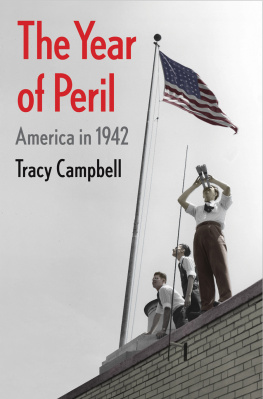Tracy Campbell - The Politics of Despair: Power and Resistance in the Tobacco Wars
Here you can read online Tracy Campbell - The Politics of Despair: Power and Resistance in the Tobacco Wars full text of the book (entire story) in english for free. Download pdf and epub, get meaning, cover and reviews about this ebook. year: 2021, publisher: University Press of Kentucky, genre: Politics. Description of the work, (preface) as well as reviews are available. Best literature library LitArk.com created for fans of good reading and offers a wide selection of genres:
Romance novel
Science fiction
Adventure
Detective
Science
History
Home and family
Prose
Art
Politics
Computer
Non-fiction
Religion
Business
Children
Humor
Choose a favorite category and find really read worthwhile books. Enjoy immersion in the world of imagination, feel the emotions of the characters or learn something new for yourself, make an fascinating discovery.

- Book:The Politics of Despair: Power and Resistance in the Tobacco Wars
- Author:
- Publisher:University Press of Kentucky
- Genre:
- Year:2021
- Rating:4 / 5
- Favourites:Add to favourites
- Your mark:
The Politics of Despair: Power and Resistance in the Tobacco Wars: summary, description and annotation
We offer to read an annotation, description, summary or preface (depends on what the author of the book "The Politics of Despair: Power and Resistance in the Tobacco Wars" wrote himself). If you haven't found the necessary information about the book — write in the comments, we will try to find it.
Shortly after 1900, tens of thousands of tobacco growers throughout Kentucky and Tennessee convulsed the region for nearly a decade in a revolt against the monopolistic practices of the American Tobacco Company. Though the revolt known as the Tobacco Wars remains one of the more remarkable insurgencies of rural America, it is also one of the more misunderstood. In this first major account of the uprising in over half a century, Tracy Campbell tells the story of these embattled farmers and casts a provocative new light on the issues that fueled the Tobacco Wars.
When tobacco prices fell below the cost of production in the early 1900s, farmers in western Kentucky and Tennessee, faced with desperate economic circumstances, formed cooperatives through which they could pool their crops and withhold tobacco from the market until a satisfactory price was offered. Campbell recounts the organizational underpinnings of the notorious Black Patch War and the forces that drove farmers to seek violent solutions to their economic ills. Campbell then expands the story to the burley region, where a simultaneous movement was under way. In 1908, over thirty thousand burley growers undertook the only successful large-scale agricultural strike in American history. Campbell brings this drama to life and describes the emotional day when the farmers achieved their unprecedented victory over the powerful Tobacco Trust.
The Tobacco Wars represented one of the last desperate gasps from the countryside before the onset of agribusiness drove millions of farmers and their families away for good. The Politics of Despair thus stands as a unique reminder of a tradition of protest that has, perhaps, been irretrievably lost. This book will interest not only rural and labor historians and students of the American South but anyone concerned with the profound issues surrounding the decline of rural America.
Tracy Campbell: author's other books
Who wrote The Politics of Despair: Power and Resistance in the Tobacco Wars? Find out the surname, the name of the author of the book and a list of all author's works by series.









 Member of the Association of American University Presses
Member of the Association of American University Presses